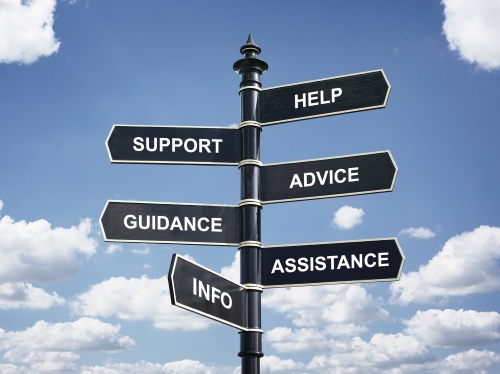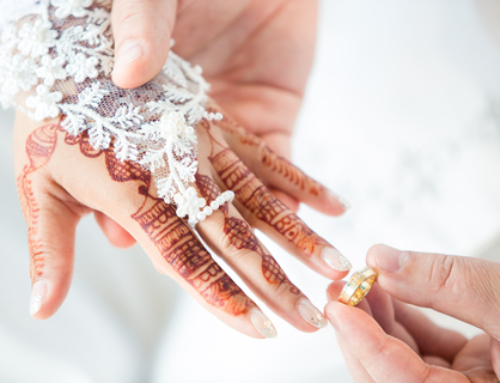By Laura El Alam
New Muslims often have many questions about how to practice Islam properly. At the same time, they are often bombarded with unsolicited opinions, information, and advice. Whether it’s an unknown brother or sister in the mosque approaching them with a critique, or a random “born Muslim” who decides to share words of wisdom with them, converts hear a lot of feedback. In some cases, the advisors have the best intentions and actually offer excellent suggestions, but other times, they are not really qualified to give Islamic guidance. How will a convert know?
If face-to-face interactions can be confusing, the internet can be even more baffling. With its endless supply of information, the anonymity of much of the content, and the difficulty of discerning the validity of claims, the internet is home to a mixed bag of Islamic information. While some websites and influencers offer greatly beneficial knowledge, others spread inaccurate information and do more harm than good. For those who are new to Islam, it can be extremely confusing to know whose opinions are valid and whom they can actually trust.
All Muslims have a responsibility to seek knowledge. Abu Huraira reported: The Messenger of Allah, peace and blessings be upon him, said, “Whoever travels a path in search of knowledge, Allah will make easy for him a path to Paradise.” Source: Sahih Muslim 2699
Our seeking must be done strategically. Just as we would not solicit advice from random strangers if we suspected we had a serious medical problem, we should not rely on dubious sources in order to gain clarity on our deen. We must strive to ensure that our Islamic guidance comes from reputable, educated, upstanding sources.
Here are a few tips for new converts who aren’t sure whom to trust with their Islamic education.
- Find an official mentor. Your local mosque might be able to pair you with an individual who is trained and capable of giving you guidance. WhyIslam can also help you find a mentor in your area. Your mentor should be the same gender as you. He or she should have an excellent character, a sincere commitment to Islam, and no vested interest in your spiritual journey. For instance, they should not be waiting for you to practice Islam properly in order to marry you, or to have you marry their son or daughter.
- Remember that Islam is perfect but Muslims are not. There are many sincere and knowledgeable Muslims who are excellent guides and role models, but sadly there are also some weak, uneducated, or unscrupulous ones. New converts are in a particularly vulnerable position because they often know little about the faith. They tend to trust established Muslims who seem to have all the answers. But remember: just because someone grew up in a Muslim household or in a Muslim-majority country does not mean they have correct Islamic knowledge. In fact, many Muslims confuse their cultural traditions, superstitions, or family habits with Islamic rulings.
- Some Muslims even purposely exploit new converts. Women who are new to Islam must be especially careful because some men will distort the religion to fit their own agenda. They will teach the new Muslim only what suits them, ignoring or concealing her rights and dignity. Female converts should make sure to find a female mentor who can answer questions about women’s rights and responsibilities in Islam and advocate for her if and when necessary.
- Listen to your gut. If a Muslim (online or in real life) gives advice that seems harmful to you or others, make sure to research the topic further. Do not rely on one person’s opinion, especially if that person doesn’t have any scholarly credentials, or does not cite reputable sources. Having thousands of online followers, being charismatic, speaking with confidence or authority, or being born into a Muslim family does not make someone a scholar or a legitimate role model.
- Watch for red flags. Sincere, well-informed Muslims will never backbite or slander others in order to gain likes or followers. They will not value one ethnic group, nationality, or race above others. They won’t preach a message that pits men against women or that makes one gender sound superior while presenting the other as inherently flawed. Knowledgeable Muslims won’t promote terrorism, but will work for justice and peace. Rather than following fads or adopting un-Islamic trends to gain popularity, sincere believers will maintain their etiquette, high moral standards, and wholesome behavior. Muslims who use vulgarity or immodesty in an attempt to be modern or relatable are not following Islamic guidelines.
- Don’t be fooled by looks. Don’t assume that someone is a scholar because of the way they dress. A man with a long beard, a thobe, and a kufi might look more intellectual or authentic to you, but clothes can be deceiving. Character, training, and credentials matter more than outward appearance. Likewise, wearing an abaya and a niqab does not necessarily make a woman more scholarly. It may seem unnecessary to remind you, “Don’t judge a book by its cover,” but most humans tend to make subconscious assumptions based on others’ attire. Keep in mind that not every worshiper is an expert in Islam. Even sincere, practicing Muslims often lack in-depth knowledge of their religion.
- Use reputable websites for research. Many of us Google a question and accept the first answer we get. For instance, typing the question “Does a new Muslim need to change their name?” garners about 158,000,000 results on Google. The first, prominent answer comes from Slate, which is not a source of Islamic guidance, but rather a secular magazine that covers politics, culture, arts, and news. Slate’s answer appears first because of computer algorithms, not because they are a Muslim’s best resource. Therefore, take the time to search for Islamic knowledge carefully. While no one can sort through 158 million articles, it is best to read a few relevant pieces from different Islamic resources to see if the opinions align.
Some reputable websites are:
Yaqeen Institute for Islamic Research: https://yaqeeninstitute.org/
Muslim Matters https://muslimmatters.org/
Hadith database https://sunnah.com/
WhyIslam https://old.whyislam.org/
Today, new converts have a wealth of information at their fingertips. As the Muslim population grows, there are also more and more brothers and sisters to connect with in real life. However, seekers of knowledge must always use their critical thinking skills. They must realize that the first, easiest answer is not always correct, and that one Muslim’s opinion is not necessarily the truth. Here is one helpful hint to keep in the back of your mind: Islam is a faith of moderation, modesty, peace, egalitarianism, and justice, so be wary of any message that goes against those criteria. Search for truth–strategically– until your heart feels at peace.
Want to know more? Call 877-WhyIslam or visit whyislam.org. You deserve to know!
Author bio: Laura El Alam is a first-generation American Muslim and the author of over 100 published articles. She has written a children’s book, Made From the Same Dough, due to be released in 2023. You can visit her online at www.seaglasswritingandediting.com.








